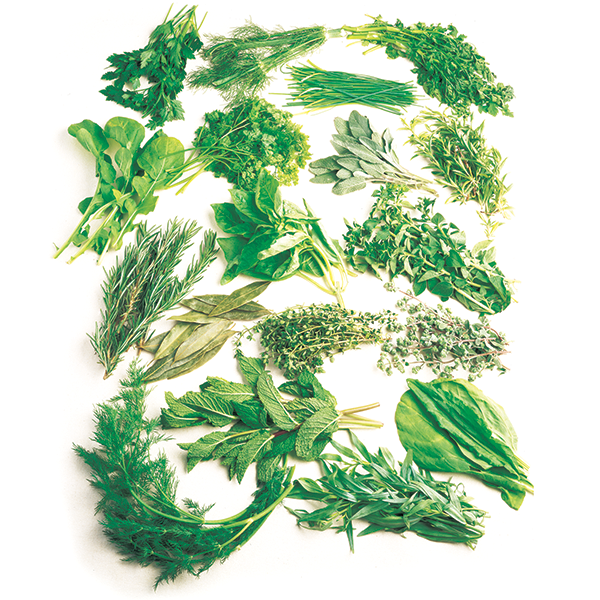
Fresh herbs are a popular organic item, with nearly 5% of overall organic sales being made up of fresh herbs, and nearly half of herb sales made up of organic. Their high price point (average organic price is five times conventional) makes them a sure bet for your bottom line, too.
Organic herbs go with everything. Promote them with organic soup fixings, organic meat and other organic vegetables as they can add flavor to any dish.
Promote organic herbs year-round, paying close attention to the winter holidays when people are looking to make a special meal or two. Don’t forget to promote organic dill and basil in the fall when gardeners are looking to can their harvests. Include organic herbs in summertime grilling promotions as they add great flavor to those summer cookouts.
Fresh organic herbs can be overwhelming for your everyday consumer. Create an organic herb display with clear labels for all your herbs that include information on how to use each herb.
Fresh organic herbs are highly perishable. Keep an eye on the display and remove any wilted product at once. Organic herbs should always be refrigerated and not tightly stacked. Herbs need the air to move between them. Keep organic herbs away from the misters and ethylene-producing vegetables.
Organic herb bundles are a great way to introduce consumers to the many uses for fresh herbs. Consider offering some of these options:
Shipping
Consumer packs
Most organic herbs are shipped in packages containing 6, 12 or 30 bunches, bags or tubs. Living organic herbs are often shipped in 12-count packages.
Grades
There are no official U.S. Department of Agriculture grades for herbs, but many growers have rigid shipping guidelines. Herbs are judged on flavor, appearance, leaf shape and to a lesser extent, color.
Handling
Temperature: oregano, 48 to 50 F, 9 to 10 C; basil, 50 to 55 F, 10 to 12.8 C – temperatures lower than 48 F, 9 C, will cause basil to turn black; all others, 38 to 42 F, 3.3 to 5.8 C.
Typical shelf life: bag, five or more days; tub, seven or more days when stored at proper temperatures.
Do not mist herbs; packaged herbs retain moisture. Watering herbs creates condensation in the bags, causing premature deterioration. However, if you must remove herbs from bags for display purposes, it’s important to keep them damp. If herbs become dry from air exposure, leaf damage will occur.
Fennel stalks do not store well – only three to four days. They quickly dry out and lose their flavor. For optimum keeping, cut the stalks from the bases, wrap separately in plastic and set in the coldest part of the refrigerator. If fennel seems listless, soak in ice water in the refrigerator for an hour or two.
Fiddlehead ferns do not store well. Although they do not spoil rapidly, they quickly lose their fresh flavor and elastic tone.
Put herbs, except basil, in the cooler as soon as they arrive.
For basil, oregano and mint, black spotting is a sign of deterioration. Yellowing is an indication of deterioration in all other herbs.
Keep fresh herbs in their original plastic shipping bags in your cooler. The closed bag creates a stable environment for herbs. Should herbs ever arrive heated, open bags to release excess moisture. Leave open about two to three hours, then close so as not to dehydrate the herbs.